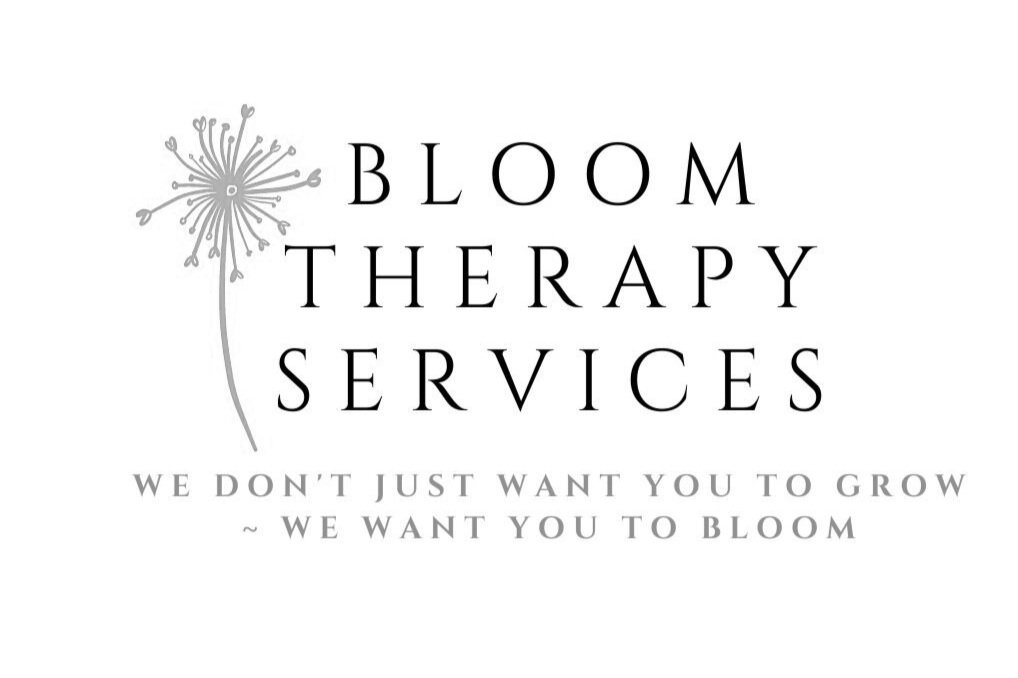Will My Insurance Pay for Obesity Counseling?
The answer is – it depends. With obesity rates climbing, the American Medical Association declared Obesity as a disease in 2013. With this change also came the cry for insurances to cover for preventative and treatment services for those afflicted with obesity issues.
Will my insurance pay for my counseling regarding obesity, disordered eating or food addiction?
The answer is – it depends. With obesity rates climbing, the American Medical Association declared Obesity as a disease in 2013. With this change also came the cry for insurances to cover for preventative and treatment services for those afflicted with obesity issues. Depending on the insurance, a wide variety of services for prevention and treatment may be available including: bariatric surgery, gastric bypass surgery, intensive counseling, formal weight loss programs, group treatment sessions, health coaches and nutritionist interventions.
Who is eligible for reimbursement?
Most patients will require a screening to see whether or not they meet the requirements for obesity. Most clinics still utilize the BMI scale to measure for obesity and this has been found an acceptable way for medical professionals to diagnose patients. Mental health counselors may also diagnose patients based on behavioral assessment via the Diagnostic Manual. A diagnosis of Binge Eating Disorder, Bulimia, or other eating disorder may also help patients meet criteria for reimbursement.
Why does my insurance company tell me I have to be seen by my doctor and my sessions with my counselor don’t count?
Many insurance companies now support the need for treatment of Obesity. However, restrictions require the patient be seen by the primary care physician in a primary care setting. This restricts individuals from seeking treatment from other health professionals such as licensed counselors, psychologists, dietitians and nutritionists. This has presented to be an ongoing issue with many arguing research supports behavioral intervention as a necessity in effective treatment for obesity related problems, an area in which medical doctors and primary care providers have little training.
How can I get my insurance to cover my visits to see my counselor?
Obesity has become a significant problem with nearly 1 out of 3 people affected. Research shows most people afflicted with obesity are also likely to suffer from Binge Eating Disorder, a diagnosable mental health issue. Binge Eating Disorder is characterized by recurrent episodes of consuming abnormally large amounts of food beyond fullness. Insurance companies are required to provide mental health coverage, however, many employers still make decisions regarding what types of problems are covered. The good news? More and more states are requiring eating disorders to be covered as part of coverage and also recommending weight not be the only factor in deciding if someone is eligible.
How do I discuss coverage with my counselor?
Many mental health providers offer a free consultation before you even begin your sessions. During your consultation, discuss insurance reimbursement with your counselor. He or she may have advice for you on how to get covered and may even be able to facilitate coverage. In addition, your counselor may have other payment options available to make treatment affordable for you.
How do I talk to my insurance about coverage for my obesity treatment?
Familiarize yourself with your insurance policy or health benefit plan. Obtain a copy from your employer or insurance company if you don’t have one.
Understand the insurance policy’s coverage for treatment at an in-network facility versus an out-of-network facility.
Ask your insurance company for a list of in-network treatment facilities.
If the insurance company has no in-network facilities in your area or state, ask your insurance company for a single case agreement with your preferred treatment facility in your area.
Document that the treatment is medically necessary by providing your doctor’s written support, your own letter describing your need for treatment, and if available, letters of support from family members or co-workers.
Document what forms of therapy and treatment you have exhausted by submitting copies of all treatment records to the insurance company.
Ensure that your facility communicates with the insurance company in writing and retains records of correspondence.
Keep records of all out-of-pocket expenses for future reimbursement.
Find out if your state has a Mental Health Parity Law. The National Alliance on Mental Illness has a chart outlining the mental health parity laws for each state.
Obtain a copy of the treatment facility’s license to determine if it qualifies as a hospital, skilled nursing facility, congregate living facility, or other health facility license through the state.
Source: https://www.eatingdisorderhope.com/health-insurance-coverage-for-binge-eating-disorder
Does Madden Wellness accept insurance?
Madden Wellness does not direct bill for insurance. However, we do provide you with a superbill, a medical receipt in which you can submit to your insurance for reimbursement.
What if my insurance doesn’t reimburse and I can’t pay?
There may be several other options available to you even if your insurance does not reimburse you. Talk to your counselor or health care provider about a payment plan, sliding scale fees or another payment arrangement. In the meantime, continue to discuss options with your insurance provider and keep all records of your treatment.
Madden Wellness is a partner at Open Path Collective, a service which allows clients to pay one monthly payment towards sessions, a convenient and cost effective way to seek treatment.
Madden Wellness also offers Advance Care financing options for those needing affordable treatment. Many individuals may be eligible for 0% financing.
Additional Helpful Resources:
Decision Memo for Intensive Behavioral Therapy for Obesity
Health Insurance Coverage for Binge Eating Disorder
How to Fight for Coverage with an Eating Disorder
What is an Out-of-Network Provider?
Teaching Kids the Truth About Weight Stigma
I can remember it like it was yesterday when one of the more popular girls in the class pinched my butt in front of several others and laughing, said, "There's a lot to pinch there!" And I know my father never meant any harm when he used to call me his "little fat buddy," but the words still cut deep.
I can remember like it was yesterday when one of the more popular girls in the class pinched my butt in front of several others and laughing, said, "There's a lot to pinch there!" And I know my father never meant any harm when he used to call me his "little fat buddy," but the words still cut deep. My mother was only trying to be helpful, and likely didn't know what else to do, when she signed us both up for Weight Watchers, me at the ripe age of 12. Because I was a heavier child, I'm sure she was trying to do the best she could, but it still made me feel ashamed, ugly and as if there was something wrong with my weight and appearance.
I think back to some of these moments now and KNOW they were contributing factors in some of the reasons why I struggled with my weight, my eating behaviors and my preoccupation with food and my body. That's why Weight Stigma Awareness Week is so important and this year's theme of Teaching Kids the Truth is so relevant. Children are so impressionable, and as mothers, fathers, teachers, health care providers, mentors and coaches, we have to learn how to talk to children about their bodies and their weight in a positive way.
Every year, the Binge Eating Disorder Awareness (BEDA) group hosts Weight Stigma Awareness week, and this year it is taking place on September 26th - 30th. They will be hosting several events online to support the cause.
Some of the featured events include:
Podcast hosted by Aaron Flores, RDN, featuring Carmen Cool, MA, LPC, and a group of teens and young adults discussing weight, health, bias and social justice
Clinical blog posts by Ashley Solomon, PsyD; Kathy Kater, LICSW, Jocelyn Lebow, Phd, Dr. Lauren Muhlheim PsyD, CEDS, PSY and Dr. Jennifer Copeland, PsyD
Personal narrative blog posts by Ragen Chastain, Kimberly Dark, Naomi Ortiz and Melissa Mazza
Video installment by Tammy Kremer portraying the effects of weight stigma and its impact on the BED cycle
Video by YouTube sensation and ED activist Matt Shepherd – stay tuned
You can find more information about these events on the BEDA website.
Help for Your Child
In addition, if you have a child struggling with body image issues, weight stigma, body shame, weight-related self-esteem issues, or obesity, and you're not sure how to talk with them about it, then you may consider seeking professional help. At Madden Wellness, I can meet with you, your child and the entire family in a safe, supportive environment to help your child understand weight stigma and find body acceptance. Please see the Child and Adolescent Problematic Eating Page for more information. Please contact me via the contact form for a Free Consultation.
National Family Meals Month
September is National Family Meals Month! This mission is all about taking initiative to encourage families to eat at the table together more often!
September is National Family Meals Month! This mission is all about taking initiative to encourage families to eat at the table together more often!
According to a recent poll, only 20% of American families with children eat together seven nights out of the week. In addition, only 75% percent of families are eating together at least four nights out of the week.
This campaign really hits home for me, because as a child, my family and I rarely ate together at the dinner table. It's not to say we never ate together at all, but most of the time it was sitting in the living room in front of the television. According to another poll, of families that ate together, 33% admitted the television was on during the entire course of the meal.
I'm not sure if this had any impact on some of my own disordered eating past, but I do know eating at the table together is something I've always longed for and wanted for my own family and home. In our first home, my husband and I had NO ROOM for a dining table in our Kitchen area, thus we were forced to eat in the Living Room -- usually in front of the television. Now that we've moved into a larger home with TWO dining areas, I still find it a difficult habit to break. I find myself eating in front of the television often. The times we do eat at the table it's difficult to even know how to converse with one another because we're both so used to the television keeping us entertained!
Eating at the table can have the following benefits for children and families (from www.takebackthetable.org):
Teens that dine with their families at least five times a week are almost one and half times less likely to report high levels of stress.
Teens who have frequent family meals are twice as likely to get A's in school.
Teens who have frequent family meals are one and a half times more likely to report an excellent relationship with their mother and father.
Teens who eat frequently with their families are less likely to smoke, drink or use drugs.
Studies show that teens who share at least 5 meals weekly with their family are 335% less likely to develop an eating disorder.
In addition, eating together as a family can also be great practice for mindful eating. Mindful eating involves eating without distraction, especially distractions form the television and other technology. One research study indicated the more tv we watch, the more weight we gain (source). They were also more likely to report having less satisfaction from their meal and not being able to remember how much they had consumed.
The Family Meals Together campaign requests for each family to take a pledge in increasing time spent together as a family at the dinner table. To take the pledge, simply do the follow:
1) Get your family together at the dinner table and say you're going to eat together more often (bonus if you make it at least 5 times a week).
2) Hold up a napkin with a family's name on it nominating them to take the pledge. Snap a photo or take a video!
3) Use #takebackthetable and tag your nominated family when you share you photo on social media sites!
That said, I'm pledging to all of you the same! I pledge that my husband and I will eat together at the dinner table, distraction free, at least 3 times a week. I'm also nominating all of you to take the pledge. Along with tagging your photos with #familymealsmonth and #takebackthetable, you can also tag them with #mwtakebackthetable for me to see YOUR pledges!
If you would like more help with Mindful Eating or for Family Interventions for your children and family, Madden Wellness offers Family Counseling for many different issues related to the eating behaviors of children and adolescents. Please click here to learn more information.
Click here for the FREE 7 Steps to Stress-Free Meal Planning Guide!
Amber Madden is a Licensed Counseling Associate specializing in Eating Disorders and Obesity. She is the Clinical Director at Madden Wellness Counseling, PLLC. She utilizes her skills in addiction to assist her clients in with Binge Eating, "food addictive" patterns, and develop a positive approach to overall health and wellness. She has a passion for assisting clients in achieving their health goals and learning to love nutritious foods and exercise. For more information visit www.maddenwellnessky.com .
MADDEN WELLNESS SERVICES
MADDEN WELLNESS CHANNEL
Mind~Body~Nutrition Chat - Stress Free Meal Planning
I thought it would be fun to share our narrative from our Facebook Group Chat if you did not have a chance to join us. Just one catch! This is only the part of the narrative for the questions I shared and does not include the participants' comments for privacy reasons.
We would love if you joined us for the next one! Join the Facebook Group to find out about the Chats! https://www.facebook.com/groups/mbnsupport/
I thought it would be fun to share our narrative from our Facebook Group Chat if you did not have a chance to join us. Just one catch! This is only the part of the narrative for the questions I shared and does not include the participants' comments for privacy reasons.
We would love if you joined us for the next one! Join the Facebook Group to find out about the Chats! https://www.facebook.com/groups/mbnsupport/
DISCLAIMER: The purpose of this chat is only meant to be psychoeducational, providing only general information. All participants are encouraged to seek the consultation and guidance of their primary care physician, mental health expert or dietician prior to any changes to diet or exercise. Though I am a Licensed Counseling Associate, in this role I am only a facilitator of general discussion as related to my expertise. Please consider seeking guidance and counseling from a Licensed Professional in your area or from www.maddenwellnesscounselingky.com for individualized care.
CHAT GUIDANCE:
- The Admin’s job in this group is to FACILITATE discussion. The group works best if everyone is engaging, offering insightful ideas, helpful suggestions and constructive feedback to other group members.
- Be kind to one another and feel free to share helpful links, appropriate photos, etc. Anything that you think would be helpful for group members.
- Obviously, no SPAMing the group, NO name-calling or outright cruelty towards other group members. You will be kicked out and banned…
- An evaluation survey will be emailed to you following the group session. Feel free to provide any helpful feedback that will make this an even more rewarding experience!
I surveyed the event beforehand and asked you all to provide some things that really stressed you out about meal-planning. Here are some things I heard:
- Family meal planning that will make everyone happy – kids/spouses.
- Preparing too much food. Not knowing what to do to keep food from going to waste.
- Getting bored with food. Too much repetition. Being afraid to experiment, etc.
- Not having enough time to meal prep.
QUESTION 1: What are some ways in which you have found that you can plan and prepare healthful meals for the entire family? Are there any unique “hacks” or tricks you can share with the rest of the group? How do you get your kids to eat their vegetables? How do you avoid cooking something different for everyone?
QUESTION 2: You were probably told a million times when you were a kid to “clean your plate” and not let anything go to waste. Of course, now that’s sometimes an issue when there are leftovers and maybe you don’t WANT to clean your plate because that’s not always the healthiest option! What are some creative ways you’ve used up your leftovers? How do you make sure you’re not making or preparing too much in the first place?
QUESTION 3: Sometimes what’s holding us back is that we get into a “food rut,” eating the same things over and over because it’s easy, we know how to make it, and we’ve got busy lives and that’s what makes getting through the day easier! How do you keep things from getting boring?
QUESTION 4 : And of course, going along with having busy lives and not enough time – sometimes it seems there’s just not enough time to prepare for healthful meals! What’s at least one way that you try to meal prep through the week? Do you have any short-cut pointers for the rest of the group? Tell us your secrets!
QUESTION 5(LAST QUESTION, BUT STAY TUNED IN FOR THE GIVEAWAY): Now, we have shared LOTS of great ideas. What is one thing you learned or see differently now after this chat? What’s one thing you will do differently next week to try and get on track with meal planning/prepping next week?
GIVEAWAY ENTRY IS COMING UP STAY TUNED….but first….
I want to tell you all about my new program I’m launching in just a few short weeks called, BEAT THE BINGE. This is an Online Interactive 8 Week program at which you will be able to do some things at your own pace, such as learning courses.
In addition, there will be lots of opportunities for engaging with the Beat the Binge community, implementing some of the coursework and keeping one another accountable. We’ll be exploring topics such as how to manage food cravings, clinically proven methods for managing emotional eating and more. This is an opportunity to no longer have to EVER be on a diet again. I want to teach you how to incorporate a lifestyle change and stop feeling crazy around food.
PLUS those that join the program will get 1 month FREE of the new MADDEN WELLNESS MEMBERSHIP, a community that will offer ongoing support, educational instruction, one-on-one coaching, and lots more for WAY LESS that the price of a single counseling session.
GO HERE to learn more and get on the VIP list for the first launch of the program at a DISCOUNTED rate: http://www.maddenwellnessky.com/beat-the-binge
FREE RESOURCES: Before we wrap up, be sure to check out the event page sometime tonight or tomorrow. I will be posting some additional free resources and information there for you to look at regarding Meal Planning. In addition, if you have not done so already, please take advantage of my 7 STEPS TO STRESS-FREE MEAL PLANNING GUIDE at this link: https://www.dropbox.com/s/q9hpmb8yena3zaw/Meal%20Planning%20Steps.docx?dl=0
!!!!!!GIVEAWAY TIME!!!!!
As previously mentioned, one lucky attendee will win a FREE Food Log Analysis. You can find out more by visiting the link I provided on the Event page. I will be in contact with the winner within 24 hours and we can discuss how you’ll get started.
FREE RESOURCES FROM STRESS FREE MEALING PLANNING CHAT:
WASTING FOOD-PREPARING TOO MUCH FOOD-LEFTOVERS: http://greatist.com/health/leftovers-meals-healthy-recipes
NOT HAVING ENOUGH TIME TO MEAL PREP:
http://nutbutterrunner.com/search/meal+prep ß------ She used to meal prep every weekend and post on her blog.
30 Day Meal Plans from Eatingwell.com - http://www.eatingwell.com/search/apachesolr_search/30%20day%20meal%20plan
MEALS FOR THE WHOLE FAMILY:
Family Mealtime – It Doesn’t Just Create Warm Memories - http://www.todaysdietitian.com/newarchives/100713p30.shtml
Want Kids to Eat Healthier? Tell Them, Don’t Show Them - http://www.todaysdietitian.com/news/080713_news.shtml
8 Ways to Eat Healthy When Your Spouse Doesn’t - http://www.bengreenfieldfitness.com/2009/08/8-ways-to-eat-healthy-when-your-spouse-doesnt/
MADDEN WELLNESS ARTICLES ON MEAL PLANNING
7 Steps to a Healthy Meal Planning Guide – http://www.maddenwellnessky.com/meal-planning-guide
Meal Planning Mistakes (from the archive) – Meal Planning Mistakes - https://louisemaddenblog.wordpress.com/2015/11/17/meal-planning-mistakes/
Making Healthy Taste Better - http://www.maddenwellnessky.com/new-blog/2016/3/26/savortheflavor
LINKS TO MADDEN WELLNESS PROGRAMS:
Beat the Binge – http://www.maddenwellnessky.com/beat-the-binge/
Madden Wellness Membership - http://www.maddenwellnessky.com/mw-membership/
Food Log Analysis – http://www.maddenwellnessky.com/new-page/
Individual Counseling and More - http://www.maddenwellnessky.com/services1/
Amber Madden is a Licensed Counseling Associate specializing in Eating Disorders and Obesity. She is the Clinical Director at Madden Wellness Counseling, PLLC. She utilizes her skills in addiction to assist her clients in with Binge Eating, "food addictive" patterns, and develop a positive approach to overall health and wellness. She has a passion for assisting clients in achieving their health goals and learning to love nutritious foods and exercise. For more information visit www.maddenwellnessky.com .
National Eating Disorder Awareness Week 2016 #NEDAwareness
February 21st - February 27th marks the National Eating Disorder Awareness Week hosted by NEDA. This important event brings information and education to the general public and community regarding eating disorders.
Hello everyone!
February 21st - February 27th marks the National Eating Disorder Awareness Week hosted by NEDA. This important event brings information and education to the general public and community regarding eating disorders.
From the website:
The goal of National Eating Disorders Awareness Week (#NEDAwareness Week) is to put the spotlight on the seriousness of eating disorders and to improve public understanding of their causes, triggers and treatments. By increasing awareness and access to resources, we can encourage early detection and intervention, which can improve the likelihood of full recovery for millions.
NEDA also offers a free screening for anyone believing they may be at risk for an eating disorder. The screening is completely anonymous and only takes about three minutes to complete.
You can take the screening here: SCREENING
OTHER RESOURCES
In addition, I wanted to share with you several other great resources.
Eating Disorder Hope - A website that offers education, inspiration and support to those struggling with eating disorders and their families. The website is host to hundreds of informational articles and also a hub for locating an eating disorder professional by state.
BEDA- The Binge Eating Disorder Association is an organization focusing on the education and advocacy for those that suffer with binge eating disorder. The organization encourages best practices in treatment and research.
The Obesity Society - A nonprofit organization focused on expanding research and reducing stigma and discrimination for those affected by obesity. The society publishes a monthly journal, The Obesity Journal, which is made free to the public.
FREE ONLINE SCREENINGS
SCOFF Screening Tool - A 5 question self-report tool assessing for anorexia and bulimia.
Eating Disorder Examination Questionnaire - Self-report measure assessing Weight Concern, Shape Concern, Eating Concern and Restraint.
Food Addiction Questionnaire - Eating disorders have been compared to substance abuse addiction. This tool measures for those similarities.
PROFESSIONAL HELP
As always, it is of utmost importance to consult with a professional if you believe you have a problematic relationships with food. Professionals can come in many forms and should be skilled in treating eating disorders, mental health issues, medical issues and assessing nutrition needs. Professionals can include Licensed Counselors, Licensed Psychologists, Primary Care Physicians, Dietitians and Nutritionists.
HOTLINE HELP NUMBERS
NEDA - 1 (800) 931- 2237
Eating Disorder Hope - 1-888-274-7732
BEDA - 855-855-2332
*Photos and graphics compliments of NEDA.ORG
Amber Madden is a Licensed Counseling Associate specializing in Eating Disorders and Obesity. She is the Clinical Director at Madden Wellness Counseling, PLLC. She utilizes her skills in addiction to assist her clients in with Binge Eating, "food addictive" patterns, and develop a positive approach to overall health and wellness. She has a passion for assisting clients in achieving their health goals and learning to love nutritious foods and exercise. For more information visit www.maddenwellnessky.com .
Childhood Obesity - 3 Family Interventions
Childhood obesity presents many health problems for youth, including early onset of puberty, hypertension, high cholesterol levels, abnormal glucose tolerance and risk of obesity as an adult. In addition to the health risks involved, children with obesity also face social stigma.
With the growing epidemic of obesity rates in the U.S., also comes the growing concern for childhood obesity. For children and adolescents aged 2-19 years, the prevalence of obesity has remained fairly stable at about 17% and affects about 12.7 million children and adolescents for the past decade (http://www.cdc.gov/obesity/data/childhood.html).
Childhood obesity presents many health problems for youth, including early onset of puberty, hypertension, high cholesterol levels, abnormal glucose tolerance and risk of obesity as an adult. In addition to the health risks involved, children with obesity also face social stigma. In their school setting, they are bullied and excluded, which sometimes leads to low self-esteem, body image issues and withdrawing from social interactions.
Many factors influence and perpetuate childhood obesity, including relentless food advertising and less productivity initiatives through physical education in the education system. However, more and more research indicates a significant factor in childhood obesity rests with what occurs at the family level. Parental attitudes regarding diet and exercise, family lifestyle choices and an overall apathy regarding obesity as a health concern can be substantial contributors to childhood obesity. Prevention of childhood obesity is critical and should begin as early as possible.
Although clinical intervention is sometimes necessary, there are a number of steps parents and families can take to reduce the risks of childhood obesity through early intervention and prevention.
Incorporate health as a priority. The predictive factor in childhood obesity is parental obesity, meaning the children of overweight parents are most often overweight themselves. Children look towards their parents for guidance and as a means of learning what is acceptable behavior both in lifestyle decisions and making healthy choices. Educate your children regarding the importance of eating a balanced diet and getting exercise every day. Incorporate lessons to explain the importance, emphasizing longer life and staying healthier. Prepare and integrate healthier and more nutritious options into family meals. And remember – Practice what you preach! They will not take you seriously if they see you doing the opposite of what you’re telling them to do.
Limit sedentary activities. A survey of more than 1,600 U.S. parents was conducted by the YMCA of the USA. The survey showed that that 74% of children between the ages of 5 and 10 do not get enough exercise on a daily basis, based on the 60 minutes of daily physical activity recommended in the government’s Physical Activity Guidelines for Americans. In addition, it showed about 50% of children 5-10 are watching at least two hours of TV a day more than five days a week, and spending an hour in front of a computer three days a week (http://www.webmd.com/children/news/20110414/most-young-kids-dont-get-enough-exercise).
These results indicate many parents are not placing an important enough focus on physical activity nor are they enforcing limits for their children’s “screen-time” activities. Parents need to incorporate activities at least 3-4 times a week, an hour each day. In addition, they should place limits on their children’s screen-time activities. Parents are encouraged to view these actions just as they would any other action for their children’s health. For example, it is routine for children to receive vaccinations from illness and disease, even if they do not like being stuck with a needle. Children should be held accountable for their time spent on technology sources because it is imperative for their long-term health, even if they do not like it.
Consider a Family Based Intervention (FBI) program. A research study initiated a Family Based Intervention program where 38 pairs of parents and their children were enrolled in a 12 – 16 week intervention program. Families were guided to create short- and long-term goals, as well as learn new skills like how to track their eating. Out of the 38 pairs, 24 completed the program and lost weight or showed improvement (Nauert, R., 2014).
FBI programs are a great way to seek professional services, but at discounted and affordable rates. Costs are usually divided among group participants. To participate in a FBI program, check with local clinics, health departments, YMCA’s and schools to see if there are similar programs offered in the area.
In addition, Madden Wellness Counseling also offers services for families and children regarding obesity and other childhood problematic eating patterns. You can find out more on our website.
References
Nauert PhD, R. (2014). Focusing on Families To Tackle Childhood Obesity. Psych Central. Retrieved on July 16, 2015, from http://psychcentral.com/news/2014/06/16/focusing-on-families-to-tackle-childhood-obesity/71273.html .
Amber Madden is a Licensed Counseling Associate specializing in Eating Disorders and Obesity. She is the Clinical Director at Madden Wellness Counseling, PLLC. She utilizes her skills in addiction to assist her clients in with Binge Eating, "food addictive" patterns, and develop a positive approach to overall health and wellness. She has a passion for assisting clients in achieving their health goals and learning to love nutritious foods and exercise. For more information visit www.maddenwellnessky.com .








































